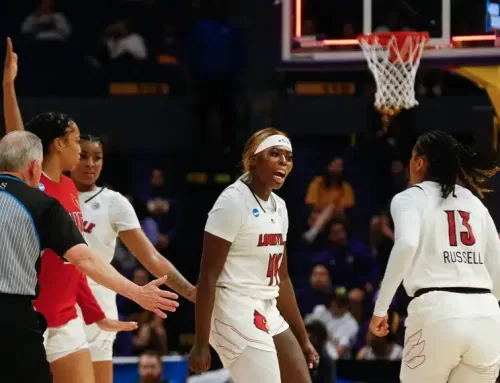By Bryan Mercke–
Imagine if all the textbooks and notebooks in your classes were merged into one. On Jan. 18, Apple released software allowing users to place textbooks on the iPad for grades kindergarten through 12. Apple has not made e-textbooks available to the college-level market, but while Apple’s release won’t change the classroom overnight, it does serve as a landmark for the ever-changing role technology will play in education.
There are some mixed reactions to Apple’s entry into the digital textbook market, but overall, the sentiments received are positive. University of Louisville student Glenn Marcus said, “If the textbooks I use are available on this application next semester, then it would be silly for me not to take advantage of it.”
To stress his point he goes on to say, “Who wouldn’t?”
Another appealing benefit of tablet textbooks is conversion to digital information from bulky paperbound books.
“I’d rather have an e-textbook tablet because I got seven textbooks that I carry to class right now and I have four classes a day so, I mean, it gets heavy,” said Bo Gabbard, a sophomore communication major. “My back kills at the end of the day, it really does.”
Chris Wolverton, biology professor at Ohio Wesleyan University, believes the implications for growth surrounding this new software are immense. He said on his blog that if he had the ability to, “publish a book only targeting my class, by converting those outlines I’ve made into short chapters on each topic, well… Why not.” He also says he could distribute his book in a PDF format for students without iPads to use. Many specialty courses do not have textbooks available for students, but this software gives them the, “freedom and flexibility to put together a little book to accompany a specialty course… an idea attractive to me.”
“I think they’re great. I think they’re a great resource for students but it’s difficult because a lot of teachers either aren’t familiar with technology or are kind of averse to technology and they don’t really like people having some kind of gadget out while class is going even if they are looking at a textbook,” said Franklin Neff, a senior English major.
Neff also sees congruencies between the current controversy over pirated music and the potential to download a textbook, “one issue that could become a factor is the ease with which one could just bootleg a textbook digitally just as a PDF file.”
As to the future impact that e-textbooks will have, Neff believes they will not completely overturn the current textbook market. But Gabbard thinks that the convenience of digital information does have the power to replace paper textbooks.
“I would think so, I mean they’re more convenient, they’re kind of cheaper and you don’t have to print anything,” said Gabbard.
It seems unlikely that classrooms will integrate the use of electronic books so quickly given the small number of students capable of affording it in its current medium, but it is a great stepping stone for improving the learning experience. The impact of this technology is not instant, but it will be interesting to see how this new development shapes the future of classrooms around the world.
[email protected]
Photo illustration by Nathan Gardner/The Louisville Cardinal




